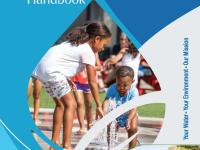Boil Water Advisories
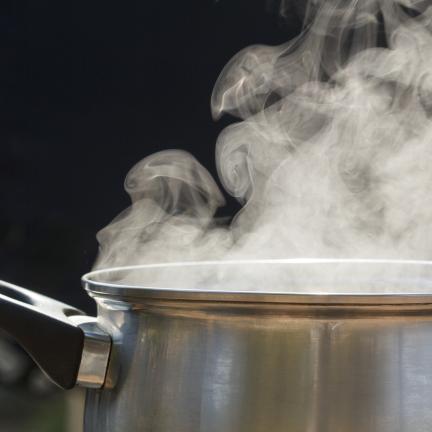
During emergencies or events affecting water safety, Prince William Water may issue boil water advisory. This precautionary measure aims to protect your health by addressing potential risks such as harmful microorganisms, drops in water pressure, or infrastructure issues like equipment failures and floods. Boiling tap water is a simple yet effective way to eliminate microorganisms like bacteria and viruses, ensuring that your water is safe to consume.
During a boil water advisory, you should follow specific guidelines to safeguard your health. Boil tap water for at least one minute before using it for drinking, cooking, or preparing beverages like coffee and tea. Additionally, water used for washing vegetables, brushing teeth, or any water that might be swallowed should also be boiled. If you have a water treatment device at home, remember that it may not remove harmful microorganisms, so boiling the water remains necessary.
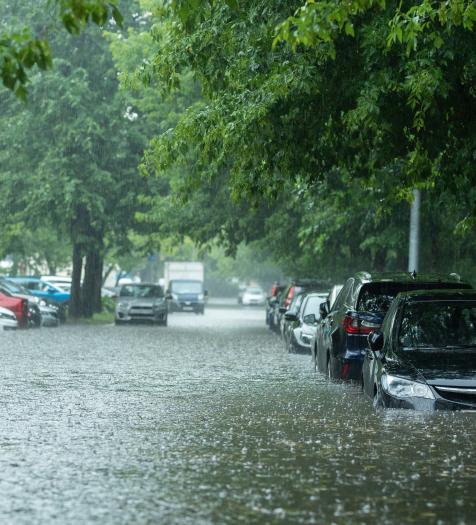
It is essential to stay informed during a boil water advisory and follow recommendations from local authorities. While waiting for confirmation that tap water is safe to drink again, consider using bottled water as a convenient alternative. Bottled water from a reliable source can be used for all purposes where boiled tap water is recommended. However, if you cannot boil your tap water due to a power outage or other reasons, there are alternative methods to ensure its safety. These may include using liquid household bleach to disinfect tap water or utilizing water purification tablets according to the manufacturer's instructions.
Learn how to Prepare for Water Emergencies.
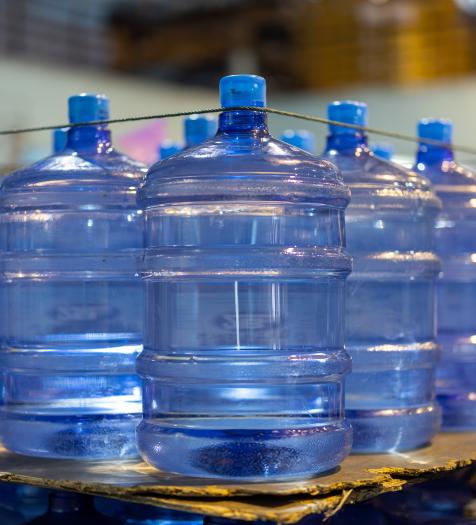
During boil water advisories, schools and food service establishments must adhere to specific guidelines to maintain safety standards. Handwashing should be done with warm tap water and soap, followed by a liquid hand sanitizer as an additional step. When preparing food, ensure that a minimum internal temperature of 165°F is reached, or use boiled water. Utensils must be washed and sanitized properly, with dishwashers reaching appropriate temperatures. Discontinue the use of drinking water fountains and produce misters during advisories.
If you experience illness during a boil water advisory, consult your healthcare provider, and inform them about the advisory. Vulnerable individuals, such as those with weakened immune systems, should seek advice from their healthcare providers regarding drinking water safety. Remember to continue boiling tap water until you receive confirmation that it is safe to drink again. By following these precautions and guidelines, you can help protect yourself and your family during boil water advisories, ensuring access to safe and clean drinking water.
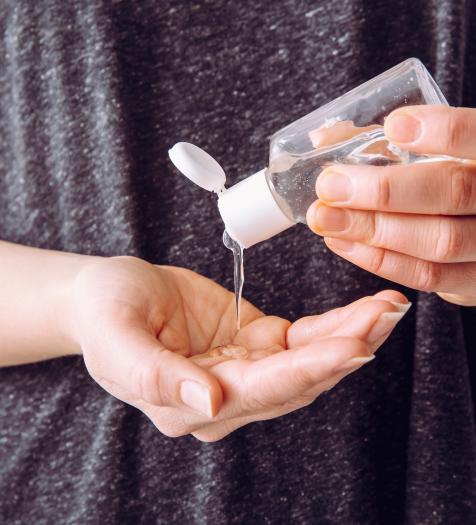
Boil Water Advisories Frequently Asked Questions
How does boiling make my tap water safe?
Boiling the water kills microorganisms such as bacteria, viruses, or protozoans that can cause disease. Boiling makes the tap water microbiologically safe.
Why was I advised to boil my tap water?
You may be asked to boil your tap water during an emergency:
- If tests show that harmful microorganisms could be present in the water,
- If the water pressure drops due to equipment failure or power outages,
- Because of water main breaks or repairs,
- If the water source has been flooded, or
- During other situations that warrant special action to protect consumers’ health.
Is it necessary to boil water to be used for handwashing during a boil water advisory? Is any special soap necessary?
No. It is not necessary to boil the tap water used for washing hands. Use warm tap water and soap for handwashing, and follow with a liquid hand sanitizer. The hand sanitizer must be used as an additional step; it does not replace handwashing.
Should I boil the tap water I give to my animals or pets during a boil water advisory?
You should boil the tap water and let it cool before you give to the animals in your care.
Can I use my dishwasher during a boil water advisory?
Test dishwashers to verify that temperatures reach 165 degrees Fahrenheit on the surfaces of the internal contents of the appliance. To test the temperature, place a food thermometer into a glass and run the dishwasher. During the wash cycle take note of the temperature.
How long should I boil the water?
Bring tap water to a full rolling boil, let it boil for one minute, and let it cool before using.
If I am under a boil water advisory, can I boil water in the microwave?
Tap water can be boiled in the microwave in a microwave-safe container, provided that the water reaches a full rolling boil for one minute. Place a microwave-safe utensil in the container to keep the water from superheating (heating above the boiling point without forming steam or bubbles).
If I am under a boil water advisory, do I have to boil the tap water used to make beverages?
Yes. Boil all tap water you use for making coffee, tea, mixed drinks or any beverage made with water. In addition, boil all tap water used for making ice for consumption.
Should I boil the tap water used to make baby formula if there is a boil water advisory?
Yes. Only use boiled tap water or bottled water for mixing formula for your baby. Make sure that the water is entirely cooled before giving it to your baby.
Do I need to boil water before using it to wash vegetables that will be eaten raw if there is a boil water advisory?
Yes. Boil all tap water you use for washing raw vegetables.
Should I boil the tap water used in cooking during a boil water advisory?
All tap water used in cooking must first be boiled for one minute unless the cooking process involves boiling for one minute or more.
Do I have to boil my dishwashing water during a boil water advisory?
No. A spoonful of Clorox bleach in a sink full of tap water should treat dishwashing water. Rinsing water should also contain bleach. Air-dry dishes and utensils before using or use an electric dishwasher with its heating elements on to wash dishes. After washing in an electric dishwasher, rinse dishes in water with a spoonful of bleach and air-dry before reuse.
Should I boil tap water for brushing my teeth during a boil water advisory?
Yes. Any tap water that might be swallowed should be boiled before use.
Is it necessary to boil water to be used for a bath during a boil water advisory?
There is no need to boil water for bathing or showering. Adults, teens and older children can shower or bathe, though they should avoid getting water in the mouth or swallowing the water.
Infants and toddlers should be sponge bathed. No special soaps are necessary. Care should be taken to prevent water from getting into deep open or post-surgical wounds.
Consult your physician or health care provider for wound care instructions
Do I need to use boiled water for washing clothes or flushing the toilet during a boil water advisory?
No.
Do I still have to boil tap water if I have a water treatment device during a boil water advisory?
Yes. Devices designed to improve the taste, odor, or chemical quality of the water, such as activated carbon filters, will not remove harmful microorganisms from the tap water. Boil the tap water to make sure it is safe.
Can I use bottled water instead of boiling tap water during a boiled water advisory?
Yes. Bottled water can be used for all situations where boiled tap water is recommended. Be sure that the bottled water is from a reliable source.
Can I haul water from my neighbor’s well or spring for drinking purposes?
No. You should only use water from an approved, tested source. Without routinely testing the water there is no way to know if the water is safe to drink.
What should I do if I become sick during a boil water advisory?
See your family physician or healthcare provider. Your doctor may call the Virginia Department of Health Office of Drinking Water at (804) 864-7500 for information about the boil water notice.
Your doctor should notify the local health department if he or she suspects your illness was caused by microorganisms in the water.
Some people may be more vulnerable to contaminants. People with weakened immune systems, such as people with cancer undergoing chemotherapy, organ transplant patients,
people with HIV/AIDS or other immune system disorders, some elderly and infants can be at greater risk from infections.
These people should seek advice about drinking water from their health care providers.
Guidelines on ways to reduce the risk of infection from microbiological contaminants are available from the Safe Drinking Water Hotline at (800) 426-4791.
How will I know when it is safe to drink my tap water after a boil water advisory?
- You will be notified when tests show that the tap water is safe to drink.
- You may be asked to run water to flush the pipes in your home before using your tap water or be given other special instructions.
- Until you are notified, continue to boil all tap water for one minute before use.
What should I do if I cannot boil my tap water because of a power outage during a boil water advisory?
In an emergency, boiling is the preferred method for making sure tap water is safe to drink. The following are acceptable alternatives if you cannot boil your tap water because of a power outage or loss of gas service:
- Use bottled water.
- Disinfect tap water with liquid household bleach. Bleach should be recently purchased, contain at least 5.25% hypochlorite, and contain no additions or fragrances. If water is clear, add 8 drops (1/8 teaspoon) of bleach per gallon. If water is murky, add 16 drops (or 1/4 teaspoon) of bleach per gallon. Stir bleach into water and let it stand for 30 minutes before using.
- Water purification tablets may also be used to disinfect tap water by following the manufacturer’s instructions.
How do I wash my hands during a boil water advisory?
Use warm tap water and soap for handwashing. After hands are rinsed and dried, follow with a liquid hand sanitizer. The hand sanitizer must be used as an additional step; it does not replace handwashing.
Can I use tap water when preparing food products during a boil water advisory?
If using tap water in your food product, the minimum internal temperature must reach 165 degrees Fahrenheit or boiled water must be used.
Can I use tap water for washing food products during a boil water advisory?
Use boiled and cooled water when washing food products that will not be cooked afterward or purchase pre-washed items.
Can I thaw food with tap water during a boil water advisory?
Tap water may be used to thaw food in a preparation sink, as long as the product is cooked afterward and reaches a minimum internal temperature of 165 degrees Fahrenheit. If possible, thaw food in a refrigerator instead of using tap water.
Can I continue to use my ice maker during a boil water advisory?
No. Discard ice made from tap water. All ice, including bagged ice, must be from an approved source (e.g. purchased ice).
Can I continue to use a produce mister during a boil water advisory?
Discontinue the use of produce misters during a boil water advisory.
Can sanitizing solutions be used during a boil water advisory?
Yes, however sanitizing solutions must be 50-200 parts per million chlorine and tested routinely with test strips.
Can dipper wells be used during a boil water advisory?
No, discontinue the use of a dipper well for the duration of a boil water advisory.
Can hot beverages continue to be served during a boil water?
Coffee and other hot drinks must reach at least 165 degrees Fahrenheit before drinking. If not, use boiled and cooled water to prepare hot beverages.
Can mixed beverages containing water be used during a boil water advisory?
Do not consume mixed beverages containing tap water during a boil water advisory. This includes soda dispensers connected to a water supply. Substitute mixed beverages with canned or bottled. Discontinue the use of drinking water fountains and other plumbing fixtures used to provide drinking water.
